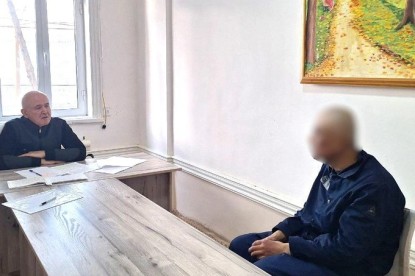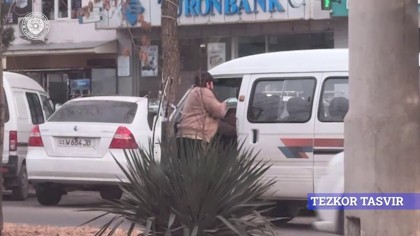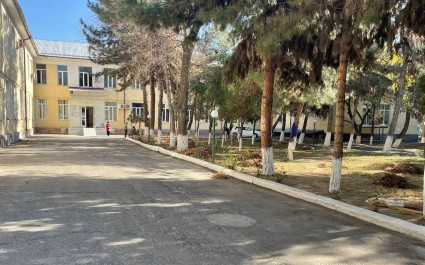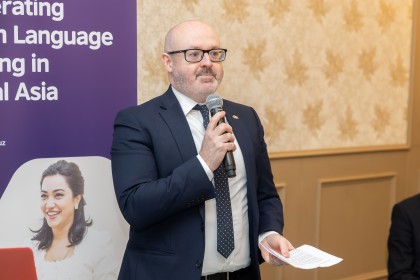On 13 May, the EU adopted the 2018 Annual Report on Human Rights and Democracy in the world. This report provides a snapshot of the EU’s engagement and actions in 2018, ranging from the flagship campaigns like the one for the 70th anniversary of the Universal Declaration of Human Rights, or the launch of the Good Human Rights Stories Initiative at the United Nations. The Report includes the Human Rights and Democratisation situation in Uzbekistan.
Overview of the human rights and democracy situation
The leadership of Uzbekistan has continued its efforts to improve Uzbekistan's human rights record - with some success. Almost all persons from the EU list of prisoners of concern have been released, albeit not rehabilitated - they still face administrative restrictions, limiting their free movement, employability, etc. Measures against forced labour in the cotton harvest (including the eradication of child labour) have continued, in cooperation with the ILO and other partners.
For the first time, independent monitoring by civil society activists was also allowed and results were discussed with a wide spectrum of relevant stakeholders. Registration and reporting rules for civil society organisations were simplified, but their practical implementation still raises questions. Uzbekistan has also adopted a roadmap on Freedom of Religion or Belief. After a series of legislative commitments in a wide range of human rights issues, the challenge now is to implement these commitments. Authorities have continued granting citizenship to stateless persons residing in the country, which is a very positive development. Despite this progress, the overall human rights situation in Uzbekistan calls for further improvements. Human rights concerns persist in several areas, including restrictions in the areas of freedom of expression, information, religion, assembly and association. Furthermore, Uzbekistan has still not ratified the Optional Protocol to the UN Convention against Torture, which would enable an effective monitoring system in places of detention. A number of positive steps are being taken (e.g. installation of cameras in detention facilities, a few prison visits), but more decisive action would be necessary to bring the country closer to international human rights standards.
EU action - key focus areas
The EU engages in human rights and democracy discussions with Uzbekistan in a number of settings, including the annual meetings of the EU-Uzbekistan Cooperation Council and Cooperation Committee, the Parliamentary Cooperation Committee, the Subcommittee on Justice, Home Affairs, Human Rights and Related Issues. In addition, the European Parliament Foreign Affairs Committee and delegation for Central Asia/Mongolia as well as the Council Working Group in charge of Uzbekistan conducted fruitful visits to the country.
Discussions covered a broad range of issues and were constructive and friendly, including on difficult subjects raised by both sides. The EU continued to voice concerns, or notice positive developments, through statements, speeches, interviews, formal and informal steps to encourage Uzbekistan’s government to ensure full respect for human rights. The EU Delegation also stayed in close contact with the Uzbek Ombudsman and the National Human Rights Centre. Rooting out forced labour in the cotton harvest remains a priority for the EU; this is regularly and closely monitored in cooperation with the ILO and other stakeholders.
EU bilateral political engagement
Overall EU relations with Uzbekistan have broadened, deepened and become much more constructive, which is appreciated by both sides. As a consequence, negotiations for a new Enhanced Partnership and Cooperation Agreement have started in November 2018, while Uzbekistan has also expressed its intention to accede to the WTO and GSP+.
EU financial engagement
The EU continued to provide financial support for projects funded through the Development Cooperation Instrument (DCI), the Instrument contributing to Stability and Peace (IcSP) and the European Instrument for Democracy and Human Rights (EIDHR) - the budget for the latter has been increased by 50% to reflect positive developments in Uzbekistan. In 2018, the EU has launched EIDHR-funded projects on "Advancing civil society in promoting economic, social and cultural rights' standards" and on "Advancing women’s rights through enhanced protection and self-employment", as well as continued the implementation of the project on "Enhancement of vulnerable children protection mechanisms in Uzbekistan - SOS children’s villages of Uzbekistan" and successfully concluded the project on "Promoting access to human rights for vulnerable woman and men". DCI continued to fund the third-party monitoring on forced and child labour in the country. The EU maintained close cooperation with UNDP, UNICEF, OSCE and the World Bank.
Multilateral context
Uzbekistan engaged constructively in the May 2018 Universal Periodic Review (UPR), accepting 201 out of 212 suggestions received, with the 11 not accepted all relating to LGBTI rights - e.g. male homosexuality remains outlawed in Uzbekistan. The EU called Uzbekistan to keep engaging constructively with UN Treaty Bodies and to welcome further visits of UN Special Procedures. The Government submitted its draft election code for the 2019 elections to the Venice Commission and ODIHR and received an opinion in October 2018. The EU strongly supports these recommendations as well as previous ODIHR recommendations on the presidential elections. Uzbekistan participated actively in the Human Dimension Implementation meeting in of the OSCE/ODIHR.
The Government further engaged with international NGOs, such as Human Rights Watch, Amnesty International, the International Partnership for Human Rights, International Foundation for Electoral Systems, Uzbek-German Forum, Penal Reform International and others. One independent international media outlet has received accreditation in the country (VOA).
In November 2018 Uzbekistan took the positive initiative to host the Asian Forum on Human Rights at the occasion of the 70the anniversary of the Universal Declaration on Human Rights - future events would benefit from a stronger, more interactive involvement of civil society actors.













